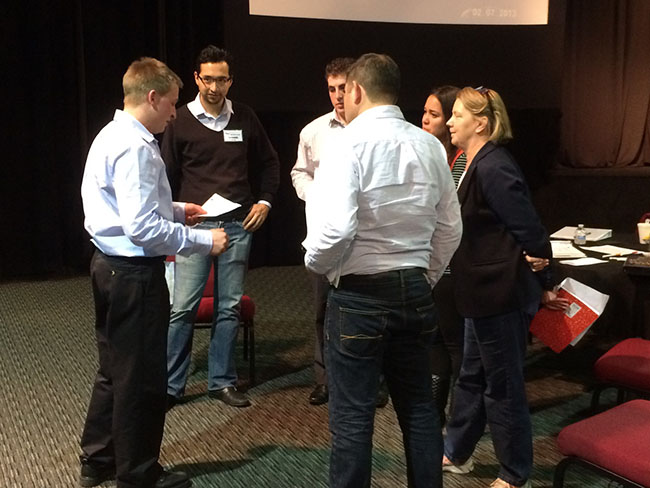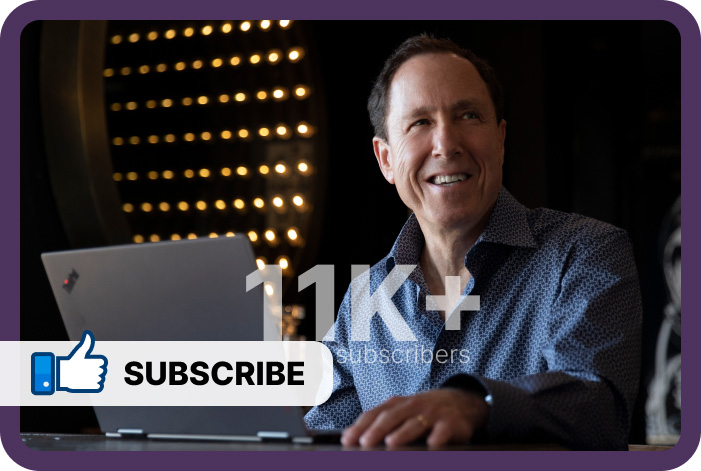
YOU CAN NEVER LEARN LESS!
I know that some days it feels that way, but no matter what happens there is always something to learn from every experience good or bad. Denying the lessons of those experiences, trying to brush them into a corner, even ignoring them is denying yourself of the pearls of wisdom that are lying all around you.
Those who are able to embrace failure and use its lessons ultimately catapult themselves to success. Those who abhor mistakes are condemned to relive them.
That is why the most powerful tool you have for your personal and business growth is knowing how to leverage your wins and mistakes. That process is called Debriefing. It is knowing when to call a time-out and taking a brief moment in time to assess what has transpired and how to leverage, correct and gain meaningful lessons from the experience.
The process of debriefing is critical to success. It helps focus on doing the things that will create more wins and successes, as well as learning from mistakes so you can improve your future outcomes. Debriefing is an on-going process not one to be saved for the end of a project, event or sales campaign. The time to debrief is while you still can influence the results of something you are actively working on, not wait until it is too late to make improvements and actually achieve your goals.
Debriefing doesn’t have to take a lot of time, yet the results on your business, relationships, health and wealth can truly be massive if you are consistently applying this process. If you are not familiar with the debriefing process, watch the video below which explains it in more depth.
As I mentioned, I don’t believe in SAVING this process until the end of the year before using it. But, I do ENCOURAGE using it to evaluate your 2015 so you can take the lessons into 2016.
So, once you are familiar with the concept (watch that video!), I suggest you use these same set of questions to look back over 2015 and identify what you learned from both the wins you experienced (and hopefully celebrated) in all areas of your life, as well as, the lessons that will allow you to take wiser actions in 2016.
Areas you can benefit from trying this debrief process include:
Your Business – Sales results, productivity, profitability, lead generation, presenting, negotiating, staffing, management, etc.
Your Relationships – Amount of time spent with significant others, kids and friends, communication, connection, honesty, trust, shared values, keeping commitments, etc.
Your Health – Diet/nutrition, exercise, stress management, feeding your mind, body and soul the nutrition they need, etc.
Your Wealth – How did you do with saving, investing, or protecting your money? How did you do with other areas of wealth that are meaningful to you?
To start this process, choose one of the areas of your life that are important to you and practice the debriefing process.
The Debriefing Process:
Ask yourself these questions in this order:
1. What happened?
Think about a specific goal or event and ask the general question What Happened? This includes the hard cold facts, numbers and results. It also includes a recap of the processes that took place.
2. What worked?
Even though sometimes things may have gone horribly wrong and your little voice wants to torment you that the whole thing was just a nightmare, we always learn something from a situation. Think about it: Did someone unexpectedly show you support, did you discover untapped resources, did you discover your own tenacity and fortitude, were you able to save money, identify new talent among your team, discover or create new opportunities, etc.
3. What didn’t work?
This is not about blaming — it is about looking at behaviors, decisions and actions that need to be adjusted in the future. Saying, “It was all Mary’s fault!” doesn’t really help Mary do anything better or solve any actual problem. Saying, “Mary seemed to have some confusion about how urgently this matter needed to be addressed to keep the account,” gives you something to work with. Now you can start solving a real problem with questions like, “How urgent is it when a request like this is made? How do we make sure that everyone knows the level of urgency and what they need to accomplish in a specific time frame?” Identify what occurred that caused the situation to not work as planned.
4. What did you learn?
This is the biggie. You want to figure out:
- What lessons you can take away that help you get really clear on what you want to do more of because that behavior generates success, and
- What you want to do less of (or stop all together) because it yields dissatisfying results.
Remember, you cannot learn less. Trial and error is our built in learning mechanism for growth. Taking the time to go through this process for areas you consider critical in your life and business will help you feel good about all the things you accomplished and learned this year and set you up to use them as a foundation to a better, brighter 2016!

